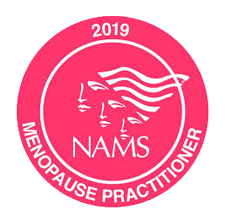Low Libido Treatments
Treatment options for low libido
There are many approaches to low libido treatments. Just as a combination of factors can cause the disorder, a combination of treatments are usually recommended based on an individual women’s physical and emotional health. Treatments for the physical causes depend on the individual. For example, changes in medication for thyroid disorders or diabetes control may be in order. A woman might need to make some lifestyle changes to combat stress and fatigue to improve the capacity for joy in other areas of her including the sexual.
Even when a medical condition is deemed a contribution to lowered libido, additional benefit is often see when women also engage in counseling or sex therapy. Specialists can help them cope with any past sexual trauma. They can help women improve their self-esteem and understand their relationships with their partners. Women can learn how to talk about sex with confidence and express their needs and concerns to their partners. They might also introduce ways to make intimacy a bigger priority — and for sex to become more erotic, adventurous, and interesting.
Hormone therapy
Estrogen and progesterone
In women who are post menopausal estrogen and progesterone therapy are sometimes helpful (or estrogen therapy alone can be considered if a women has had her uterus removed). Estrogen is a sex hormone that affects libido, among other functions. Estrogen can be administered “systemically”, most commonly through a patch or cream applied to the skin which affects the whole body and helps the brain make its needed chemical connections to increase desire. Estrogen can also be prescribed “systemically” as a vaginal cream, tablet, or cream application that improves symptoms of vaginal dryness or pain with intercourse and can also increases blood flow to the vagina and stimulate arousal.
Androgens
DHEA is a precursor to testosterone. Both DHEA and testosterone are called “androgens” and have a profound effect on many physiological functions in women including stimulation of sexual desire and regulation of genital blood flow and vaginal lubrication. Although testosterone appears to be a vital component of women’s sexual health and is an important factor in women’s overall health, women with low testosterone can still have a satisfactory sex life. Low androgen levels are evaluated by blood tests when a woman complains of low libido, fatigue, depressed mood and other symptoms suggestive of decreased androgen levels. DHEA and testosterone therapy are not FDA approved for the use in women, so a physician will talk through detailed pros and cons of this therapy if it is deemed indicated for a woman.
Next: Testosterone Therapy
Contact Us
13126 120th Ave NE
Kirkland, WA 98034
Phone: (425) 398-9355
Fax: (833) 905-2316
Email: info@drserena.com
We serve patients Monday through Friday from 8 a.m. – 4:30 p.m.
COMPLETE THE FORM TO SEND US YOUR QUESTIONS OR COMMENTS
"*" indicates required fields




